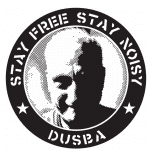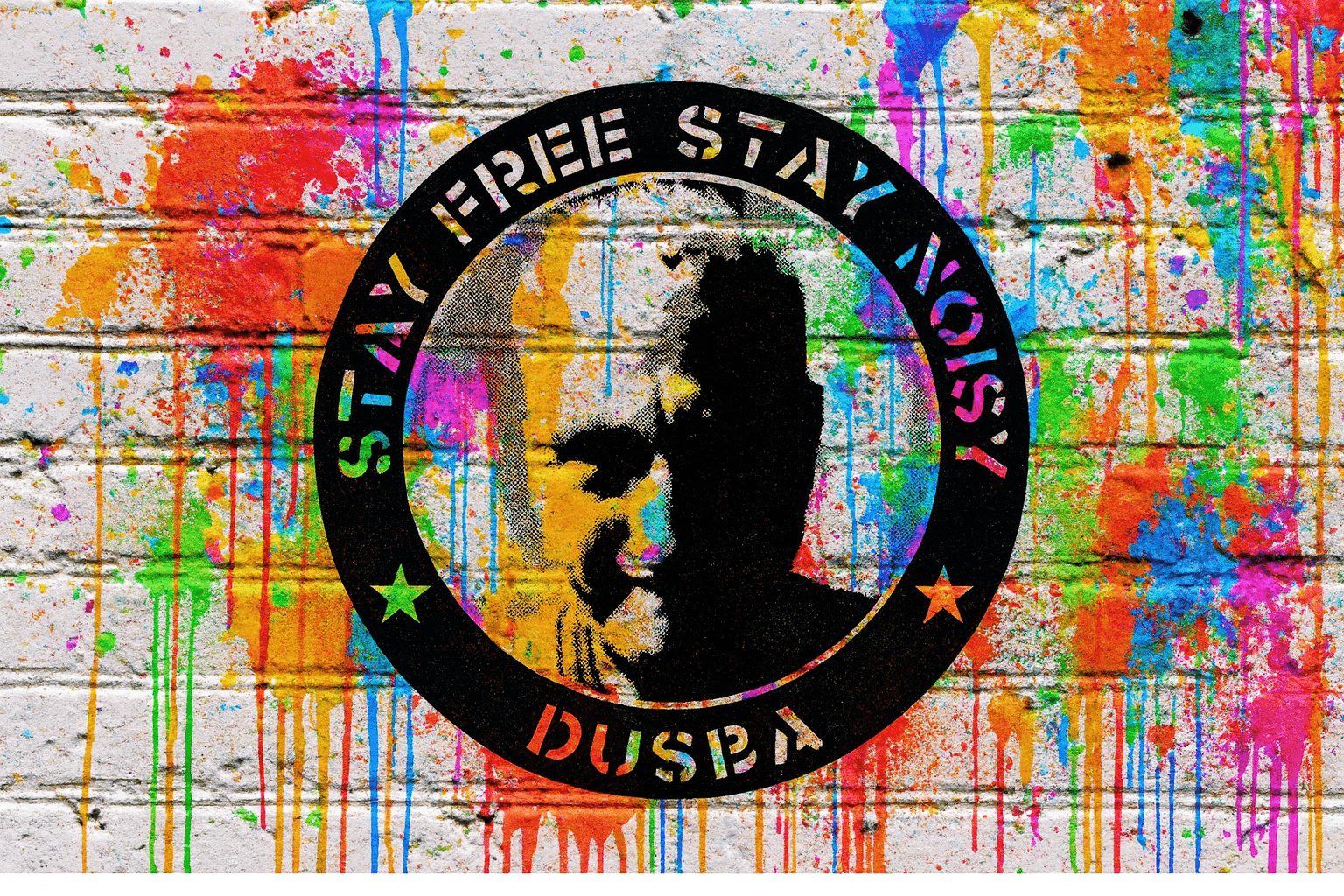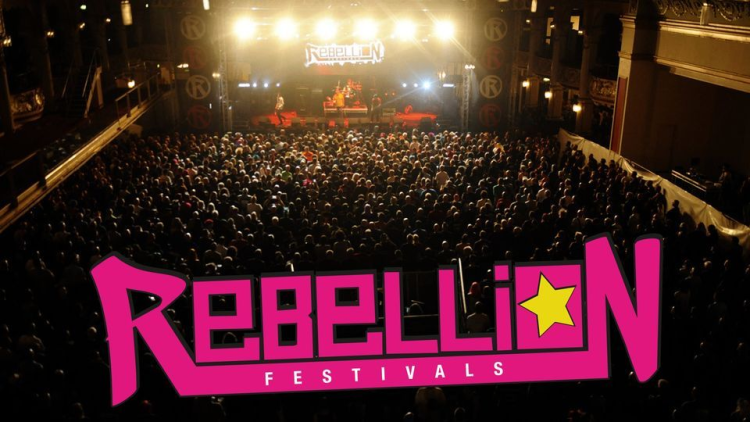A Festival with Soul
I’ve considered this festival the best of all I’ve ever attended. This year marked my fourth visit. It’s hard to believe that my first time here was 22 years ago. Back then, we drove all the way from Prague to Blackpool — an adventure in itself.
Why do I love this festival so much? It’s definitely because every year around 300 bands from all over the world perform here, and the biggest names are never missing. Another major plus is that the entire festival takes place in the city centre, inside the covered Wintergardens complex, which is divided into several large and small halls. Thousands of visitors are spared the whims of northern English weather.
The festival features seven stages, and you can move freely between them. The largest hall is the Empress Ballroom, where the biggest acts play, with a capacity in the thousands. Then there are smaller halls for hundreds or even dozens of people. There’s a stage for emerging bands, an acoustic hall for unplugged sets, and a literary hall. This year, for example, Irvine Welsh — author of Trainspotting and Acid House — gave a talk. In the past, it’s been people like Jello Biafra or Henry Rollins.
More Than Just Music
There’s also a zone where punk visual artists and craftspeople exhibit their work. Worth mentioning is the connection with the Loud Women initiative, which addresses gender inequality in the music industry and at festivals. That’s why the Pavilion stage is traditionally reserved on Sundays for emerging female music projects.
You’ll also find the “Rebellion Remembers” memorial wall, where people can pin notes and photos of friends as a tribute to punk rock warriors who are no longer with us. This year, the wall was dominated by a portrait of Colin Jerwood, singer of anarcho-punk band Conflict, who unexpectedly passed away shortly before the festival. The band still performed, and it must be said — the singer who stepped in for Colin did an outstanding job.
Of course, there’s a merch zone with dozens of stalls, often staffed by the band members themselves selling shirts and other gear. That’s another great feature — musicians aren’t hidden away backstage, they mingle directly with the crowd.
The organisers also take pride in the fact that since its founding in 1996, the festival has never had a single sponsor, which means it can rightfully call itself “independent.”
Atmosphere and Community
And what I absolutely have to mention — perhaps the most unique element — is the atmosphere and spirit of togetherness. It’s not just about music, but a shared lifestyle and philosophy that connects people from all corners of the world. You’ll meet punks and skins from every continent except Antarctica. But it’s not a chaotic crowd like at Glastonbury, even though people come from diverse countries and cultures. Here, everyone’s on the same wavelength.
Like any large festival, there’s a decent amount of security. But here, the attendees themselves make sure things stay peaceful. No fights, no wasted guys passed out in their own vomit. No trashed toilets — even after a full day of use, which is rare at big events. It’s a festival that belongs to everyone who attends, and people behave accordingly.
And it’s not just the visitors — the whole town lives and breathes Rebellion. Signs outside pubs and bars welcome punks and invite them in for a drink. Many venues host their own gigs throughout the festival, whether the bands are part of the official lineup or not. Punk, Oi!, ska and hardcore echo through the city centre for four full days, and the booze flows freely. Locals are totally cool with the annual punk invasion. In fact, over the years, they’ve grown fond of it — Rebellion has become an integral part of Blackpool.
When Punk Stood Its Ground
This was especially clear during last year’s edition, when far-right supporters decided to gather in Blackpool — as they did in many British cities at the time — right during the festival. Not their smartest move. As they marched through town, a confrontation with festivalgoers was inevitable. Bottles flew, chairs from restaurant patios were used as weapons, and there were a few punches and kicks thrown.
Once the police calmed things down, the punks grabbed brooms and started sweeping up the broken glass. They even chipped in to replace the damaged chairs and handed the money to the restaurant owner. A photo soon appeared on the local newspaper’s Facebook page — a girl with chains, ammo belts and a bright green mohawk sweeping the square. The gesture sparked an incredible response from locals. I still remember one elderly lady’s comment on the town’s Facebook page:
“We love these punks. We love Rebellion. And thank you for stopping that Nazi trash.”
There were dozens of similar comments.
Rebellion 2025
Personal Highlights and Unforgettable Moments
My biggest draw this year was definitely Garotos Podres from São Paulo, Brazil — a band that holds personal significance for me. I first got my hands on one of their tapes sometime in the late ’80s or early ’90s, and their song “Anarkia Oi!” has been in my top 10 ever since.
Founder and vocalist Dr. Mao is a history professor at the University of São Paulo, and in Brazil, this band — active since 1982 — is considered a classic of the local punk scene, alongside Ratos de Porão, Cólera and Olho Seco. A pleasant surprise came when Enrico from Los Fastidios joined them on stage and they performed “Antifa Hooligans” together. Incidentally, Los Fastidios were among the absolute highlights of the whole festival.
This year, I finally got to chat with Steve Ignorant again (greetings to Zelda and Hanka!). I also ran into Darrin from the Australian band Mouthguard, who’s been flying from Brisbane to Blackpool every year for 18 years straight. We first met about 20 years ago at Mighty Sounds in Tábor, and later, when I lived in Australia, I caught several of their gigs.
I also finally saw Knuckleheadz this year — missed them last time. They travel with a crew from LA, easily recognised by their strict green-and-black colours and “Punk Rock Fight Club” printed on their backs. A proper punk gang.
One night, outside the festival, they played a show at a small venue called West Coast Café — and as Wattie would say:
“That was fuckin’ mental.”
I happily jumped around to their cover of “Boys Don’t Cry” by The Cure, renamed “Punks Don’t Cry.”
Ed Tudor-Pole also performed at this year’s Rebellion. Yes, the guy who sang “Who Killed Bambi?” in The Great Rock ’n’ Roll Swindle, and whom Malcolm McLaren once considered as a replacement for Johnny Rotten after the Sex Pistols broke up.
And finally, I have to pay tribute to Charlie Harper. At 81 years old, he’s still full of energy. Besides seeing U.K. Subs, I also attended his acoustic set, where he played songs he used to perform as a street musician in London in the early ’70s. His humility, humour and optimism are electrifying.
U.K. Subs have already confirmed their appearance at next year’s anniversary edition. So don’t hesitate — Rebellion will be celebrating 30 years, and it’s bound to be epic.
Here’s a short video I put together from this year’s festival.
Practical Tips for Visitors
Tickets
The earlier you buy your tickets, the cheaper they are. Sales start right after the current edition ends — a full year in advance. This year, early bird tickets started at around £220. If you wait until the last minute, expect to pay £30–£40 more.
You can also buy single-day or weekend tickets, which are obviously cheaper. If you live in the UK, you can opt for a payment plan with monthly instalments. The final payment is due in June.
Accommodation
Rebellion isn’t a camping festival. Blackpool is a seaside resort with hundreds of small family-run hotels and guesthouses. Book your accommodation as early as possible — even a year ahead.
It’s best to book via booking.com, where you can also reserve a backup option that you can cancel later for free. It’s not uncommon to book a guesthouse that no longer exists a year later — and they won’t even notify you (happened to me twice).
If you don’t have a backup, you’ll struggle to find anything last-minute — or it’ll be very expensive. It’s smart to call your booked guesthouse about a month before the festival to confirm they’re still operating and expecting you. Then you can safely cancel the backup.
Travel
The nearest airport is in Manchester — about an hour away by bus or train. You can also fly into London and take the train, but expect to pay around £100 for a return ticket.
If you’re travelling in a group, it might be worth renting a car at the airport in London for five days and returning it to the same location. The drive takes about 4–5 hours.
The cheapest option is the bus. From London, it takes around 6–7 hours, sometimes more.
Also, don’t forget you’ll need an ETA (Electronic Travel Authorisation) to enter the UK. I recommend applying through the official website — the internet is full of fake
Band Schedule
Since there’s no way to catch even a fifth of all the performing acts, it’s a good idea to plan ahead and make a personal schedule of what interests you most. For that purpose, I found an absolutely brilliant tool online — Clashfinder.
Official website: www.rebellionfestivals.com
If you have any further questions, feel free to drop me a message.


